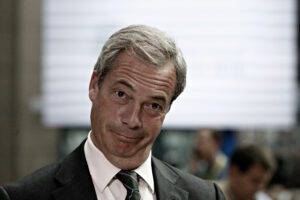Nigel Farage has announced his return to frontline politics, declaring his candidacy for MP in Clacton, Essex, and his leadership of the Reform UK party. Farage’s re-entry comes as the election campaign heats up, with major parties unveiling their key pledges.
In his announcement, Farage promised to lead a political revolt, criticising the current state of the country and the impact of immigration on housing and living standards. “I intend to lead a political revolt. Nothing in this country works anymore. We are in decline. This will only be turned around with boldness,” he stated. He positioned Reform UK as the “voice of opposition,” echoing his pivotal role in the Brexit referendum.
Farage’s move adds a new dynamic to the election, with his participation in the first seven-way debate of the campaign, hosted by the BBC. The debate will feature key figures including Penny Mordaunt, Angela Rayner, and representatives from other major parties. The debate, moderated by Mishal Husain, is scheduled to start at 7.30pm and will last 90 minutes.
Farage explained his decision to stand for election was influenced by conversations with disillusioned voters who urged him to run. He expressed guilt over not standing up for these individuals, stating, “I couldn’t help feeling I was letting them down.”
Launching his campaign at midday tomorrow, Farage aims to revitalise political discourse and address the concerns of those who feel neglected by the current political class.
Economic Reactions and Expert Opinions
John Choong, Senior Equity Research Analyst at Investing Insiders commented: “While the FTSE has yet to react to the news, gilt yields did fall a little on the back of the announcement. Nonetheless, while markets do like a hung parliament because policies are more difficult to pass, thereby giving investors and traders more certainty, current polling suggests this is unlikely to happen, as Labour are set for a landslide victory in a month’s time. That said, a lot can change within a month, and there’s always the possibility that polling data can be wrong. If a Reform and Conservative coalition does indeed come to fruition, there’s a possibility that markets may react more favourably to that outcome than a Labour majority. After all, the previous coalition government between Cameron and Clegg generated a return of 7.6% p.a, higher than any Tory prime minister in the 2000s bar Sunak. Moreover, Labour’s record since 1986 has been dismal, producing a negative return of -0.2% p.a while they were in government between 1997 to 2010.”
Daniel Wiltshire, Actuary & IFA at Wiltshire Wealth added: “This news won’t budge the markets. A Labour victory is already priced-in and it simply adds to the argument that the Tories are toast.”
Farage’s return marks a significant moment in UK politics, with potential implications for the election outcome and future government policies. As the campaign progresses, his influence and the response from voters and markets will be closely watched.
Read more:
Nigel Farage to Stand as MP in Clacton, Leading Reform UK into Election

